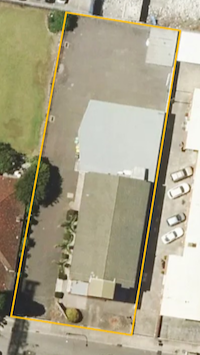Approached by a Developer? Why It Pays to Pause
If a developer has approached you about your property, you’re not alone. Landowners, particularly those near train stations or in areas with future planning potential, are often contacted directly. While the approach may seem straightforward, there is usually a lot more going on behind the scenes than most landowners realise.
Image: Before development
The Developer Already Knows What Your Property Is Worth, to Them
Developers don’t make contact until they’ve done extensive research. By the time they contact you they’ve often had a team of experts assess your site, planners, architects, feasibility analysts, so they understand what the property could be worth under current or future planning rules. That value almost never reflected in the initial offer.
Landowners often assume they are on equal footing in these discussions. But most developers have built careers on acquisitions and negotiations. They rely on securing sites at the lowest feasible price, that’s one of the most effective ways to improve their profit and reduce their risk. Their approach is methodical and commercial. They will almost always know more about your property's potential than you do.
Knowledge Is Uneven, and That’s by Design
This imbalance of information matters. While the developer is supported by a team of professionals, most landowners are entering unfamiliar territory. Offers are often structured to look attractive on the surface, especially when planning uplift is involved, but the detail can carry significant consequences.
Proceeding without independent advice risks:
Accepting a price that under values the site's strategic value.
Signing terms that reduce your control or expose you to risks and obligations.
Missing the chance to explore more favourable alternatives
Committing to a deal structure that primarily serves the developer’s objectives.
Later regretting that the deal wasn’t the maximum for you.
Image: 29 George St, Burwood after
Agreements That Look Simple Often Aren’t
Developer proposals vary widely, ranging from outright purchases to options, staged payments, put and call agreements or development partnerships. These arrangements can involve delayed settlements, rezoning risk or partial vendor roles, which are not always clear from initial discussions.
Independent advice at an early stage helps clarify:
What your property is worth to the developer, setting you up for a strong negotiation.
Whether better commercial outcomes could be achieved.
What protections and conditions should be included before anything is signed.
A Developer Doesn’t Act for You
The developer’s job is to secure the site on terms that favour their project. Their interests are not aligned with yours, in fact their interests are diametrically to yours. A dollar less in land value is a dollar more development profit. Even non-binding documents, such as heads of agreement or letters of intent, can shift the balance in later negotiations. Once signed, they’re difficult to unwind.
Early Advice Helps You Stay in Control
Independent, commercially focused advice doesn’t slow things down, it strengthens your position. Many landowners hold valuable sites in locations of increasing strategic value. With the right support, it’s possible to fully understand your options, identify better outcomes and make decisions on your terms to maximise your result.


